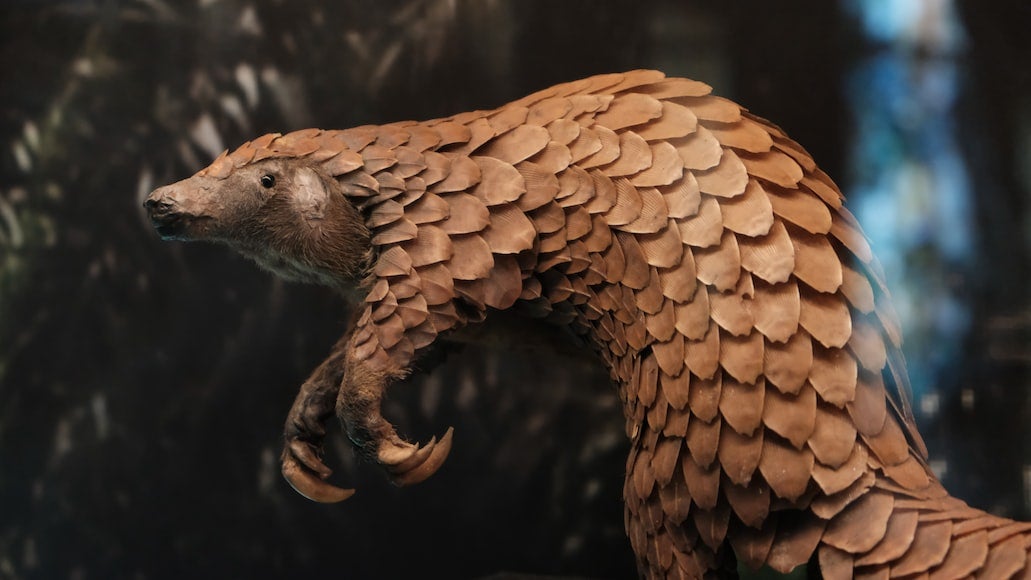Botswana man arrested for possession of live pangolin
Department of Wildlife and National Parks is working with conservation NGOs to raise awareness about pangolin conservation

Your support helps us to tell the story
From reproductive rights to climate change to Big Tech, The Independent is on the ground when the story is developing. Whether it's investigating the financials of Elon Musk's pro-Trump PAC or producing our latest documentary, 'The A Word', which shines a light on the American women fighting for reproductive rights, we know how important it is to parse out the facts from the messaging.
At such a critical moment in US history, we need reporters on the ground. Your donation allows us to keep sending journalists to speak to both sides of the story.
The Independent is trusted by Americans across the entire political spectrum. And unlike many other quality news outlets, we choose not to lock Americans out of our reporting and analysis with paywalls. We believe quality journalism should be available to everyone, paid for by those who can afford it.
Your support makes all the difference.Botswana’ Department of Wildlife and National Parks (DWNP) has confirmed the recent arrest of a man found in possession of a live pangolin in the capital Gaborone.
The department says the incident was reported to them by the Botswana Police, raising concern about the continued poaching of pangolins.
DWNP Director Dr. Kabelo Senyatso would however not reveal how the authorities got to find out about the incident saying it is an operational detail he could not discuss.
He said the DWNP have not yet done a population count to ascertain numbers of the species, adding however that they do have two ongoing surveys into the ecology of the species.
“The research will improve our understanding of this species in Botswana,” Senyatso said in an interview.
But why do people trade in pangolins?
“There are some unsubstantiated claims that some of its body parts have medical property, which are guided by traditional beliefs without any scientific basis,” the Director said.
He was however reluctant to discuss the illegal market price of pangolin, also calling it an operational detail he could not discuss.
“I would also encourage you not to publish some of the claims of monetary gain often made on social media, as your newspaper would just be perpetuating the myth, thus increasing poaching risk. Consequently I trust you would treat the matter with the sensitivity and responsibility it deserves.”
Botswana has one species of pangolin, the Ground Pangolin, known as Kgaga in Setswana, with the Latin name being Manis temminckii. Throughout Africa and Asia pangolins are threatened by illegal hunting for meat and scale. They are said to be the most trafficked mammal in the world.
“We all need to work together to stop the illegal killing of pangolins, protect the last remaining populations and remember that pangolins need their scales,” the DWNP has said.
The DWNP recently started a series of social media posts as a way to achieve greater reach in wildlife crime awareness.
Ecoexist Botswana has been partnering with DWNP, Rhino Conservation Botswana, Cheetah Conservation Botswana, Omogolo Wildlife Trust, Great Plains Conservation and other stakeholders to develop wildlife crime awareness messages around the Ngamiland area in northern Botswana with the support of US Agency for International Development (USAID) and World Wildlife Fund (WWF) Namibia.
Pangolin Africa, a pangolin conservation organization, says they are poached from the wild for several reasons.
“Firstly pangolin meat has always been consumed in parts of Africa in the bushmeat trade. This has always been sustainable but population growth has tipped this practice into becoming a real threat to all eight pangolin species. Pangolin Africa is designing easy-to-access educational materials to counteract the belief that pangolin meat is a limitless resource.”
The organisation says pangolin scales from the eight species, like rhino horn, are also believed to possess specific powers in traditional medicine.
“The scientific consensus is that this is just not true as the main component of both is keratin- the same as fingernails. However, as long as this belief is held then the pangolin poaching crisis will remain and pangolins critically endangered.”
This article is reproduced here as part of the African Conservation Journalism Programme, funded in Angola, Botswana, Mozambique, and Zimbabwe by USAID’s VukaNow: Activity. Implemented by the international conservation organization Space for Giants, it aims to expand the reach of conservation and environmental journalism in Africa, and bring more African voices into the international conservation debate.
Join our commenting forum
Join thought-provoking conversations, follow other Independent readers and see their replies
Comments